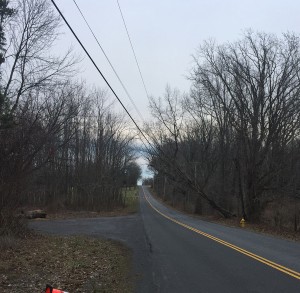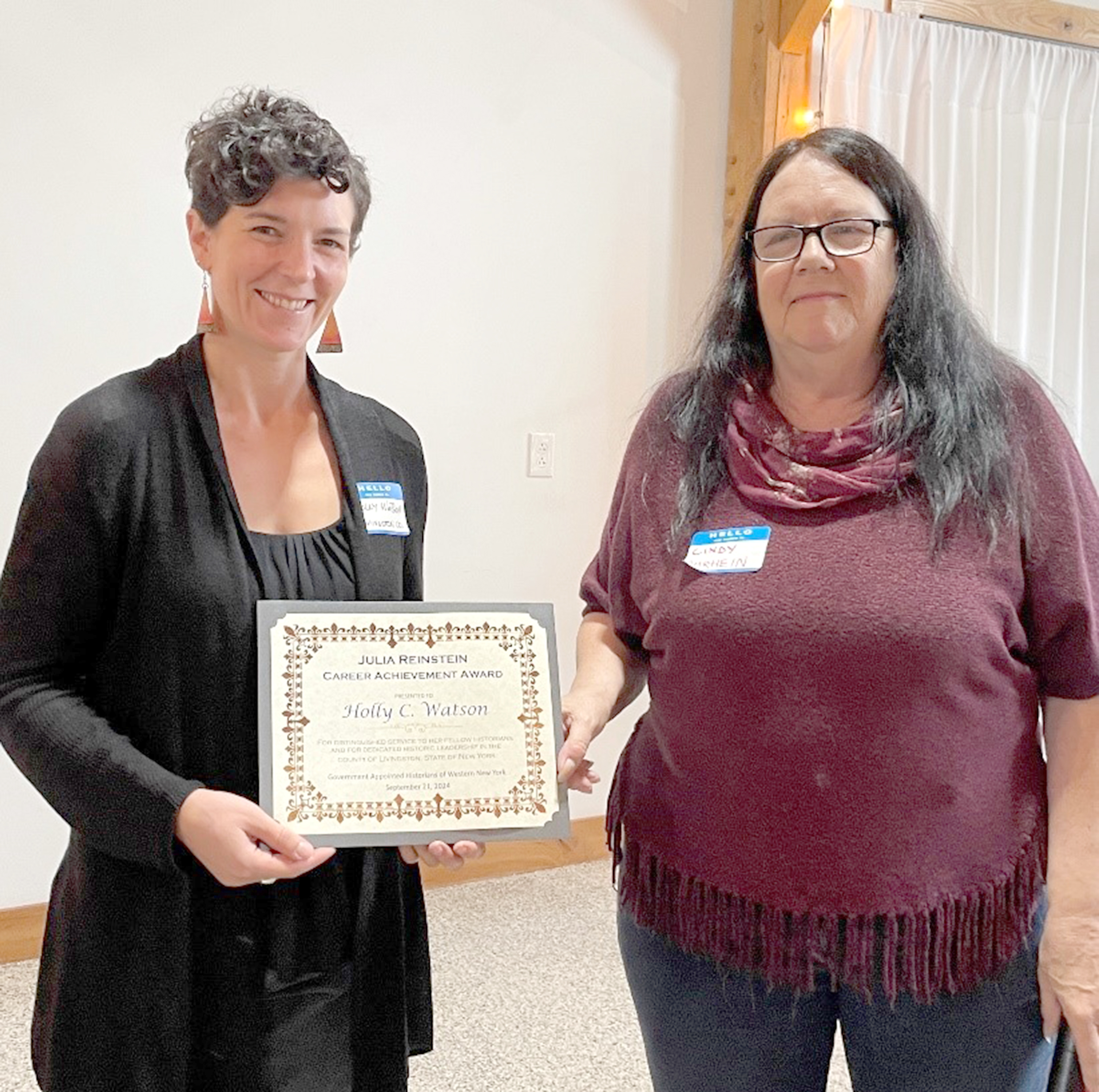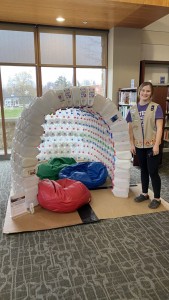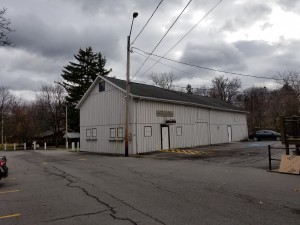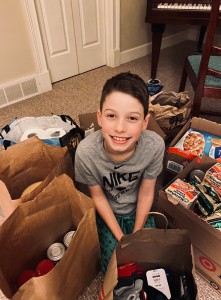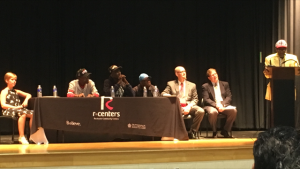
Historian Barbara Chapman (left) leads residents Elizabeth Murray and Richard King LeRoy on a historical tour of homes on Genesee Street at the 2017 Scottsville Festival of Lights. Photo courtesy of James Lesch.
BY JENNIFER CROWLEY
History is who we are and why we are the way we are. — David McCullough
In 1980 fourth-grade teacher Barbara Chapman helped Chestnut Ridge Elementary create and adopt a new social studies module on local history in order to comply with changing requirements. She relied largely on a small cemetery next to the Chili school to teach her students about the way people lived more than a century earlier. After visiting the cemetery a few more times one of the students turned to her and said, “I feel like I know these people,” and that put the current Wheatland Town Historian on a path towards today.
Chapman and her family moved to Wheatland in 1988. Shortly after arriving her burgeoning interest in the pursuit of local history became known and soon she was being recruited by the Wheatland Historical Association (WHA). The private group had been offering a short local history module for Wheatland-Chili students in 2nd and 4th grades and she was asked to help with the dramatic teaching tools such as re-enactments and skits. “Homespun crafts, weaving, butter churning, tours… so many hands-on activities to introduce the students to what life was like generally at the turn of the century, and specifically here in Scottsville.”
She smiles as she recounts the program. As she describes probable factors (i.e., the Common Core, Google) that diminished the academic focus on local history, her disappointment is palpable.
Luckily for Chapman there has never been a shortage of history related endeavors just waiting for someone like her to get involved. Around the time she retired from her 30+ year teaching career, she joined the WHA. Today she is a board member of the group that was founded nearly 50 years ago.
The WHA’s mission is to promote and encourage research and knowledge of the Town of Wheatland and its environs. From providing history related camp and college scholarships to local students, to monthly community presentations, and even a fully-owned and restored 1830s workingman’s house (Sage-Marlowe), the WHA has made significant contributions to local knowledge of, and access to, history.
Chapman’s role as Town Historian is separate from her involvement in the WHA as they are distinct entities. Before describing how she came to be Historian, she shared a little-known fact as context: New York is one of the only states to legally require each and every municipality to have a staff historian. While some towns have likely appointed a Historian in name only due to budgeting constraints, that is not at all how Wheatland has approached the role. She added optimistically that in more recent times she has seen increasing interest in the work she and her fellow chroniclers do.
“How did I get the job? It was 2007 and the Municipal Building was getting ready to open. At that time the Historian was Florence Field and her office was in Mumford. She was in her 90s so I volunteered to help her move all of the files and artifacts from her office there to the village and that really led to me becoming her deputy.” After Field retired a few years later, Chapman took the reins.
Chapman has an impeccably organized office. Books, filing cabinets, maps and signs surround the affable and petite Chapman. It is evident that continuing the laborious and meticulous efforts of those preceding her is high priority – and really to the benefit of residents and relatives of former residents. Chapman gets several calls a month from family members seeking information on deceased relatives who lived in the area decades ago. Chapman happily performs research using the volumes at her disposal and shares any findings with the family members who are often delighted to find out more about their roots.
Beyond the resources in her office, there are numerous other troves of historical notes and documents. The Sage-Marlowe House has a library, the Scottsville Free Library has a historical reading room (Cox), and then there is the Big Springs museum in Caledonia which is home to a number of larger artifacts with relevance to Wheatland. After spending an hour with Chapman it really sinks in that history is all around us on a number of levels – and how vital it is that the days of the past are not forsaken for modern lore so steeped in incremental technology innovation.
Despite a modern thirst for social technologies, the power of the internet and resources like ancestry.com (one of her favorite tools) for finding and preserving historical details isn’t lost on the 78 year-old Chapman “It speaks to a challenge for historians – how to manage aging documents, how to store them safely. Increasingly documents – photos in particular – are being digitized for greater longevity into the future, but who knows,” she says laughing.
In addition to working with the WHA and the town government, Chapman is also active with the Wells Barn Project and she has authored a number of books about local history. Her most recent published work was on WWI and the involvement of soldiers from this area as well as a detailing of the homefront effort.
In talking about what life and opportunity was like for both the settlers and the ‘movers’ near the turn of the century compared to modern times, Chapman shares a profound quote – “The needs are not so obvious anymore. Then everyone had a role, a purpose to be achieved. Life today is so comparatively easy – there really is very little room for ingenuity.” Thanks to groups like the WHA and passionate individuals such as Chapman and Field the knowledge is out there for those who seek it, with tremendous ability to enlighten and inspire younger generations.
The WHA is actively seeking new members. Visit them on Facebook or stop by the Sage-Marlowe House on Main Street, Scottsville, any Sunday in July or August from 2:00-4:00 PM.

